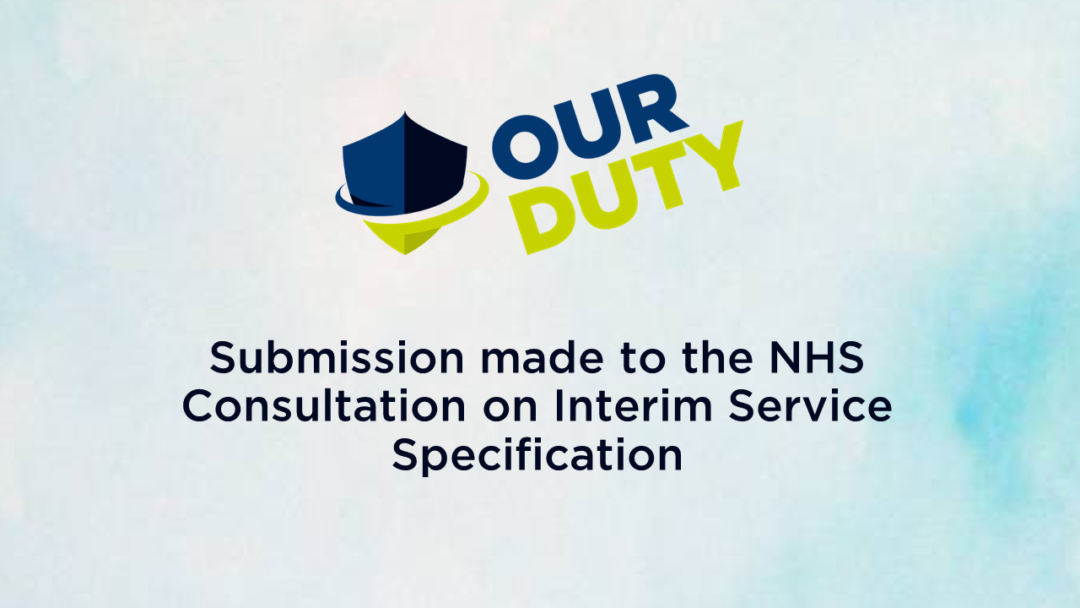Our Duty has submitted its report to the NHS consultation on the proposed Interim Service Specification for Children and Young People with Gender Dysphoria.
Key highlights are:
Objectives
We call for future services to be delivered with a focus on the long-term health and wellbeing of the patient (patient need).
Our goals are aligned with those of The Cass Review – patients presenting with transgender ideation must “receive a high standard of NHS care that meets their needs and is safe, holistic and effective”.
We suggest healthy outcomes for an outcome-driven model of service are:
- Desistance from transgender ideation
- Identification and resolution of underlying factors contributing to transgender ideation.
Language
We call for politicised and ideological language to be removed from the service specification. Such language tends to be that which supports gender identity ideology. Patients do not need to see their condition confirmed as being ‘gender’ related.
Adolescent Cohort
At Our Duty we are primarily concerned with safeguarding young people between puberty and 25 – the adolescent cohort.
We strongly urge the NHS to extend the upper age cut-off to 25 which is both developmentally appropriate and in line with NHS Long-Term Plan for Adolescent Mental Health Services (which is due to be implemented by 2025).
Risks to Effective Service Delivery
We highlight the risks posed to the successful implementation of any revised service by the Current Service Environment, the Context in which it operates, and the Ideological Capture of the NHS.
We point to the continued availability of medical interventions designed to imitate the opposite sex as posing a risk to the safeguarding of children and young people.
Highlights of our Response to the Consultation Questions are:
Composition of the Clinical Team
We do not believe that endocrinologists are needed in the clinical team. Access
to endocrinologists might be appropriate during the ‘screening and triage’ phase.
Clinical Leadership
We call upon the NHS to ensure that the lead clinicians are ‘gender critical’. We consider the protection of these NHS Services from those who subscribe to gender identity ideology to be a proportionate means of achieving a legitimate aim.
Collaboration with referrers and local services
We highlight the risks to service delivery posed by activist GPs and other professionals subscribing to gender identity ideology.
We point to the current inadequacy of local services.
Social Affirmation
We call for a more emphatic position to be taken as regards social affirmation and social transition. Social affirmation is not a neutral act. More can be done to discourage it in all settings.
Prescriptions from Unregulated Sources
We call for a robust environment to safeguard young people from being able to get opposite sex imitation treatments.
We ask for breast binders to be made a Prescription Only Medicine (POM).
In Addition
We suggest that the Interim Service Specification must:
- Better differentiate between prepubescent and adolescent cohorts.
- Recognise that opposite sex imitation is not proper medicine for the treatment of transgender ideation.
- Develop a pathway that does not entail opposite sex imitation medical treatments for cases where the patient persists with clinically significant distress or impairment in social functioning.
- Include provision for services for desisters and detransitioners (those who had transgender ideation and may have been medicalised and still require ongoing psychological and medical support).
- Demand a cultural change programme in the NHS to remove gender identity ideology from all healthcare settings.
The Submission
The full submission can be downloaded here:

